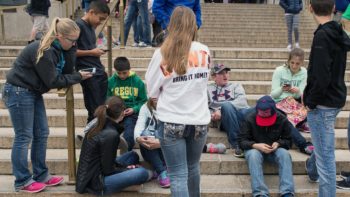 Giving Thanks on Thanksgiving Day
Giving Thanks on Thanksgiving Day
It is a very difficult year in America. We continue to struggle with the COVID-19 Pandemic. Many families do not have sufficient food supplies and cannot pay their bills. Some do not have jobs or have lost significant income. And still others are depressed and cannot meet their own needs and the needs of family members. Then millions of America’s students are forced to learn remotely with closed schools. Millions suffer from racism. Millions also have been forced to evacuate or lost their homes to extreme weather from climate change.
As we approach another Thanksgiving holiday, we must consider how we can safely celebrate the day with our family and friends. As a senior citizen, I will continue to social distance from all five grandkids and our extended family. [Read more…]


 Navigating Politics with Middle Schoolers
Navigating Politics with Middle Schoolers learning each day. I have made the following changes with my family to simplify life and expand my time to support my grandson:
learning each day. I have made the following changes with my family to simplify life and expand my time to support my grandson: Jaime Koo, Mama Best Friend (MBF)
Jaime Koo, Mama Best Friend (MBF) Online Social Activities for Teens
Online Social Activities for Teens